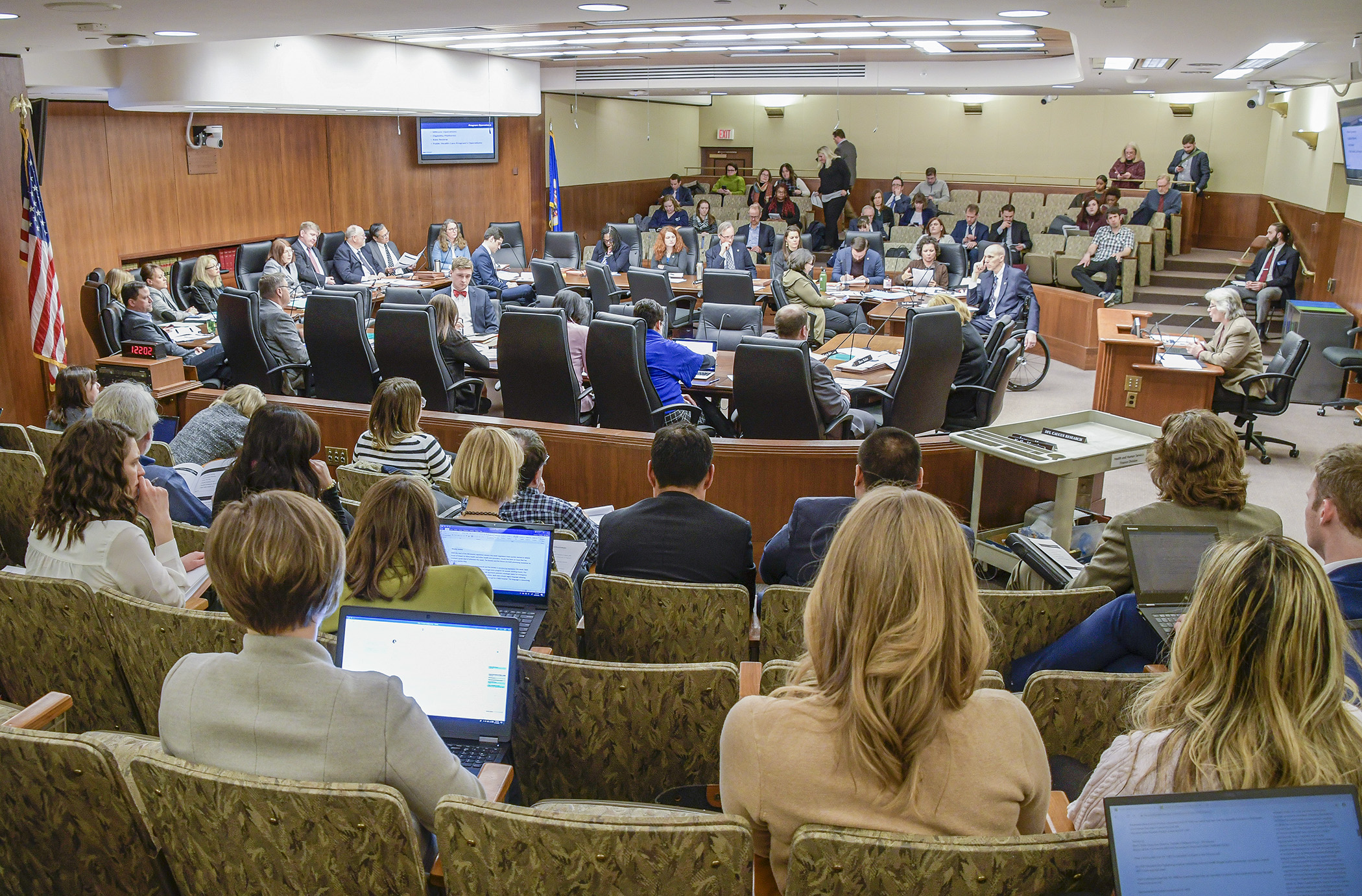Committee considers impact of potential ACA overturn

The Affordable Care Act does a lot more than many people realize — and a possible decision holding it to be unconstitutional could cause a lot of trouble for the state, state officials say.
The constitutionality of the ACA was challenged by Texas in February 2018. The case has since progressed through the court system, and may be heard by the U.S. Supreme Court, Scott Ikeda, Minnesota assistant attorney general, told the House Health and Human Services Finance Committee Thursday.
Regardless of the decision, it could lead to changes regarding whether the full ACA — or parts of it —remain in law, Ikeda said.
If it were struck down, state public health operations “would be thrown into disarray in ways that are hard to even imagine, much less quantify,” and an estimated 450,000 Minnesotans could lose coverage, Health Commissioner Jan Malcolm said.
The federal legislation, passed nearly a decade ago, annually provides $14 million for state public health programs, nearly $3 million in tax credits to Minnesotans, and $85 million for reinsurance, according to Malcolm.
The state would be hard pressed to find room in its budget to cover the loss of those federal dollars, she said.
According to Malcolm’s presentation, other changes implemented by the ACA include:
- required coverage of “essential health benefits” like mental health and substance abuse treatment, and maternal and infant care;
- prohibitions on lifetime and annual limits;
- allowing children to remain on their parents’ insurance until the age of 26;
- protections for people with pre-existing conditions;
- health care-specific anti-discrimination language to protect non-English-speakers, LGBTQ people, and others;
- the permanent reauthorization of the Indian Health Care Improvement Act; and
- the authority and funding for states to pursue innovation in health care, including Minnesota’s waiver system.
And that’s even before factoring in how many state laws are predicated on the existence of the ACA, Malcolm said.
“Whatever you think about it, this is looming large … we may be in the position of needing to protect our people … we should all be really thinking about this,” said Rep. Tina Liebling (DFL-Rochester), the division chair.
Rep. Glenn Gruenhagen (R-Glencoe) and Rep. Jeremy Munson (R-Lake Crystal) both expressed support for the end of the ACA, with Gruenhagen listing several problems with the health care system – including shrinking networks and the struggles of rural hospitals – that he attributed to its enactment.
Munson stated that if the ACA were struck down, Minnesota would have the opportunity to design and implement better, state-specific solutions to address both the cost and accessibility of health care.
Currently, that work is being barred by the presence of the ACA, he said.
Rep. Hunter Cantrell (DFL-Savage) said the state would be severely limited in what it could actually do to replicate changes made by the ACA, which Minnesotans have come to rely on.
Malcolm and several DFL division members also objected to characterizations of the ACA as being the cause of so many systemic problems, but agreed that issues with the legislation remain and encouraged addressing them in a bipartisan way.
“Any comprehensive discussion should focus on what we’d like to fix,” Malcolm said.
Rep. Jennifer Schultz (DFL-Duluth) hopes the Legislature would take the potential massive loss in federal funding into account when discussing what to do with a projected budget surplus.
Related Articles
Search Session Daily
Advanced Search OptionsPriority Dailies
Ways and Means Committee OKs proposed $512 million supplemental budget on party-line vote
By Mike Cook Meeting more needs or fiscal irresponsibility is one way to sum up the differences among the two parties on a supplemental spending package a year after a $72 billion state budg...
Meeting more needs or fiscal irresponsibility is one way to sum up the differences among the two parties on a supplemental spending package a year after a $72 billion state budg...
Minnesota’s projected budget surplus balloons to $3.7 billion, but fiscal pressure still looms
By Rob Hubbard Just as Minnesota has experienced a warmer winter than usual, so has the state’s budget outlook warmed over the past few months.
On Thursday, Minnesota Management and Budget...
Just as Minnesota has experienced a warmer winter than usual, so has the state’s budget outlook warmed over the past few months.
On Thursday, Minnesota Management and Budget...